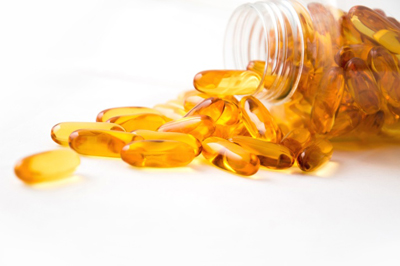How effective are dietary supplements?
 The market of dietary, vitamin and mineral supplements is booming! In the meanwhile, there are thousands of supplements, that are supposed to raise your well-being, the health or the aging or even cure cancer and other diseases. Therefore, there is a broad bunch of possibilities. There are very cheap, but very expensive compounds as well - especially in cosmetics. But do the cheap compounds really do what they are supposed to? Or is it necessary to spend so much money for good compounds? As usual, I want to provide you some background information here, which may help you to decide on your own whether such compounds are worth the money or not.
The market of dietary, vitamin and mineral supplements is booming! In the meanwhile, there are thousands of supplements, that are supposed to raise your well-being, the health or the aging or even cure cancer and other diseases. Therefore, there is a broad bunch of possibilities. There are very cheap, but very expensive compounds as well - especially in cosmetics. But do the cheap compounds really do what they are supposed to? Or is it necessary to spend so much money for good compounds? As usual, I want to provide you some background information here, which may help you to decide on your own whether such compounds are worth the money or not.
Basically, our body needs sufficient nutrients to operate, of course. In this case fat and carbohydrates only play a minor role as energy sources. Especially many different elemental nutrients, like minerals and trace elements are important, but many bio active makro-nutrients like vitamins, unsaturated fatty acids, amino acids and much more as well. These nutrients can be found especially in fresh foods, of course. Fruits and vegetables, as well as crop and nuts can provide us all we need. But in some cases it is easier to receive certain nutrients from animal sources. We find very high amounts of unsaturated fatty acids in fish, for example. One reason for that is, that unsaturated fatty acids, like omega-3-fatty acids are mainly produced by algae. Those are eaten by zooplankton which are eaten by fish. These nutrients or substances can accumulate in the food chain the higher the trophic level is (like the closer we come to the top of the food chain). We biologist call this bio accumulation, like I described already in other articles.
To answer the question from the beginning, we have to realize which nutrients are in which food. As you may can imagine, you cannot find such nutrients in most instant meals or fast food. But not only the content of nutrients is crucial. Another important factor is the so-called bio availability. This term describes the capability of the body to take up certain nutrients. This can vary strongly! Of course, the constitution of the body plays a big role. Thus, how healthy the person is. If there are general problems with the intestinal tract, some nutrients may not be absorbed as good as usual. Another important factor are synergistic effects. That is if several substances can intensify each others effects. Likewise, you can take the amount of vitamin-C of an apple, which will only result in an alleviated effect or a strongly reduced absorption of the vitamin. This is due to other substances (e.g. phenols and flavonoids) that can be find in fruits and vegetables, for example, which interact with the vitamin and support its function. This can be a multiple of the usual effect. A basically self-evident, but in TV advertisements often embezzled factor, is the factor how nutrients are consumed. If you lubrify your skin with a creme which contains macro molecules, which are supposed to reduce wrinkle formation, you should ask yourselfwhether such substances can even taken up by the skin. Furthermore, big amounts of nutrients may not be processed (or just partially taken up) and thus, they will be simply excreted again.
So, the problem of supplements is not that they do not contain the nutrients or that they don't provide the supposed effect (although I doubt this in many cases as well), but that they often can't be taken up or cannot develop their full potential, because other substances are missing. So, as long as these compounds - whether cheap or expensive - contain the same substances, you can simply take the cheaper one and thus prevent the production of a very expensive urine. But you have earned nothing with this. On my opinion and from my experience, you can easily take a very cheap supplement (especially with vitamin-C). If you want to take it, you should ensure to take it with food that contains the same substance naturally. Thus, you get the synergistic effects of the other substances which are in the respective food. This will increase the absorption of the nutrients, as well as intensify their positive effects. Of course, a balanced and conscious diet would be the much easier and simple alternative to keep your body fit and healthy. An unhealthy diet with too few of these nutrients causes not only a generally worse condition and faster 'aging' of your body, but can add up to one third of the risk to get cancer. The same magnitude as smoking!
Main-Sources:
- Liu, Rui Hai. 'Health benefits of fruit and vegetables are from additive and synergistic combinations of phytochemicals.' The American journal of clinical nutrition 78.3 (2003)
- O'Dell, Boyd L. 'Bioavailability of trace elements.' Nutrition reviews 42.9 (1984)
- Schümann, K., et al. 'Bioavailability of oral vitamins, minerals, and trace elements in perspective.' Arzneimittel-Forschung 47.4 (1997)
- Sauberlich, H. E. 'Bioavailability of vitamins.' Progress in food & nutrition science 9.1-2 (1985)
- Ames, Bruce N., and Patricia Wakimoto. 'Are vitamin and mineral deficiencies a major cancer risk?.' Nature Reviews Cancer 2.9 (2002)
- Picture: Pixnio




